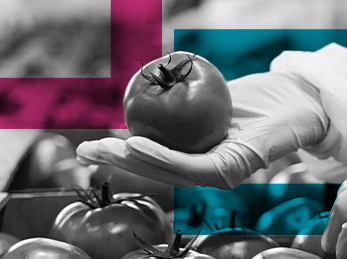How quality technology is changing food audits
Food audits are systematic evaluations designed to ensure that products meet safety, quality and regulatory standards. These can be internal food audits, where food and beverage organizations examine their own processes in search of improvement opportunities, or it may be required as part of an international standard or regulation such as a Global Food Safety Initiative (GFSI) audit or BRCGS.
With the food and beverage industry constantly adapting to changing consumer behavior, economic and supply chain challenges, technological evolution is no longer about gaining an advantage, but a necessity. So, how exactly is technology enhancing quality in the food and beverage industry, and how can these advancements benefit your organization, especially in terms of food audits?
The importance of food audits
Audits in food and beverage manufacturing are essential for ensuring food safety and quality. They evaluate the effectiveness of management systems, confirm regulatory compliance and ensure food quality and safety. Audits provide organizations with the opportunity to verify food safety practices and hazard analysis and critical control point (HACCP) plans. Transparent audit reports highlight areas for improvement within management strategies.
Consistent food audits also support robust quality management strategies that prioritize consumer safety by adhering to accurate allergen information and regulations. Regular risk assessments during audits ensure allergens are properly managed and there are no contaminated batches.
Moreover, food audits play a crucial role in ensuring food authenticity and preventing food fraud. Food auditors review and verify documents related to the sourcing, processing and distribution of food products and conduct physical inspections to detect discrepancies that might indicate fraud. This helps maintain the integrity of the food supply chain, guaranteeing consumers receive authentic and safe products.
Conducting regular food audits allows organizations to comply with global food standards like BRCGS and Food Safety System Certification (FSSC) 22000. Compliance with these standards increases retailer and consumer trust and drives continuous improvement.
Importance of digital quality management systems to food audits
Relying on paper-based quality systems is inefficient. Manually tracking industry data restricts productivity and is prone to inaccuracy. Using a modern digital quality management system is an instant way to elevate your food safety as well as your quality control, compliance and supply chain management. By continuously measuring and monitoring performance, in a way that just isn’t possible using a paper-based or excel-based quality system, you enable improvement and simplify compliance with standards.
The benefits of a digital supplier management system
In addition to a quality management system, if you’re a food and beverage manufacturer looking to reach an international market, or are using multiple suppliers produce a range of products, having a bespoke supplier management solution will provide a significant competitive advantage. Here’s why:
- Enhanced traceability: Real-time tracking of ingredients and products throughout the supply chain, improving traceability and helping to quickly identify and address any issues.
- Improved efficiency: Proactively identify and resolve quality issues, preventing delays or errors and streamlining operations.
- Better compliance: Automating documentation and audit processes ensures accurate and up-to-date records. This helps organizations comply with global food safety standards like BRCGS and FSSC 22000.
- Cost savings: More efficient problem-solving results in reduced waste and maximised profits, contributing to overall financial savings.
- Data-driven decisions: Access to comprehensive data and analytics allows organizations to make informed, data-driven decisions. Forecast demand, manage risks and optimize supply chain performance.
- Sustainability: Monitor and manage sustainability metrics, ensuring suppliers comply with environmental standards and minimizing the overall environmental impact.
What does the future hold for tech in food audits?
The food and beverage industry has consistently proven itself to be adaptable and resilient, from climate change impacts, to quickly evolving consumer demands, or rapidly developing technological innovation.
Embracing these changes in technology holds the key to truly thriving in increasingly competitive landscapes. AI, machine learning and internet of things (IoT) may improve automation, predictive maintenance, deriving findings from big data and more, but the core of food safety lies in those fundamental quality management processes, empowered by the right digital quality solution.

Explore Ideagen's food and beverage solution
Discover how Ideagen's quality management solution can help you achieve your goals in the food and beverage industry.
Find out more